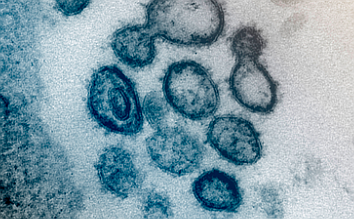Arkansas will receive more shipments this week of antibody treatments that have shown in small-scale clinical trials to mitigate the severity of the coronavirus among specific at-risk populations, such as those who have diabetes and heart disease, and patients who are at least 65.
This week, the state is "expected to receive" 460 allocations of bamlanivimab, a monoclonal antibody therapy produced by drugmaker Eli Lilly and Co., and 270 doses of the casirivimab and imdevimab treatment cocktail, developed by drug manufacturer Regeneron, Gavin Lesnick, a spokesman for the state Department of Health, said Wednesday via email.
Those allocations will be shipped directly to hospitals that request them, Lesnick said. About 40 hospitals have been identified as sites for the administration of the therapies, which are given to patients intravenously in about an hour in an outpatient setting.
The U.S. Food and Drug Administration approved bamlanivimab for an emergency-use authorization permit on Nov. 9 and did the same for Regeneron's therapy on Nov. 21.
Hospitals are working to streamline administration processes to ensure that patients who qualify to receive the drugs are able to get them in time. If the drugs are to be effective in preventing severe, if not deadly, cases of the virus, they must be administered within about a week of a patient contracting the illness.
Hospital administrators say they are working to figure out how to reach patients who could benefit as quickly as possible. Reaching those patients and potentially reducing the criticalness of the virus could also reduce hospitalizations.
"The whole country is scrambling," said Ryan Dare, an infectious disease specialist at the UAMS Medical Center. "There is no standard way of doing this, and everyone is making up a protocol and procedures for what works best for each hospital."
UAMS began administering infusions of the Eli Lilly antibody treatment this week via a family outpatient clinic that has several rooms set aside for covid patients, Dare said.
Federal regulations stipulate that the therapies cannot be administered to patients who are hospitalized. This is because the treatments have not been shown to be effective, and could even harm, patients who have become critically ill with the coronavirus.
[CORONAVIRUS: Click here for our complete coverage » arkansasonline.com/coronavirus]
UAMS will refer some patients for the antibody therapy if those patients arrive in the emergency department with covid-19, have qualifying underlying conditions and are not sick enough to be hospitalized, Dare said. Some referrals could even come from patients who test positive via drive-thru testing sites at the hospital, he said.
Dare also said he expects the hospital to treat patients who are referred by their primary care physicians, but he is concerned that the referral process will take too long.
"For a referral to come get the treatment is suboptimal from a timing standpoint," Dare said. "The more difficult we make it, the more likely patients who need it will not be able to get it."
Because of the limited allocations of both treatments, hospitals are facing the difficult task of identifying who even receives them in the first place, Dare said.
"This is a highly debated area in the infectious disease world," he said. "Some hospitals around the country are not even using these products because the supply is too limited, and it will be too hard to figure who to give it to."
He added: "We are simply using the FDA's criteria and assuming we are going to keep getting more."
CHI St. Vincent Infirmary and Baptist Health in Little Rock are working on jointly opening an antibody infusion center for covid-19 patients to administer the bamlanivimab treatment, Joshua Cook, a spokesman for CHI St. Vincent, said Wednesday.
The specifics of the antibody treatment facility are still under wraps, he said.
CHI St. Vincent in Hot Springs is developing a similar infusion center to treat patients in southwest Arkansas, he said.
St. Bernards Medical Center in Jonesboro opened a dedicated covid clinic there on Nov. 20. That facility is serving as a covid-19 followup clinic and location for antibody infusion therapy, Mitchell Nail, a spokesman, said.
On Monday, the clinic began offering the Regeneron antibody cocktail in addition to the Eli Lilly product, Nail said.
"Since we have a limited supply, we want to make sure we are getting it to the most at-risk patients," he said.
Unity Health is offering the therapies at its specialty care campus in Searcy and at its Harris Medical Center in Newport.
"We have been very successful with the monoclonal antibodies," said Roddy Lochala, Unity Health's chief medical officer. "More and more patients are asking for it. Physicians are asking for it. So far, none of the patients who have received the antibodies have been hospitalized."
"This is a small sample size," he said. "But that is the whole point of the monoclonal antibody treatments, to decrease the risk of a severe outcome, meaning hospitalization or death. We have not seen any of those antibody patients in the hospital. That is tremendous news."
CORRECTION: The state expects to receive 730 doses of covid antibody treatments. An earlier version of this story's headline provided an incorrect number.
